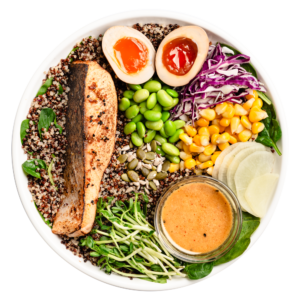Citrus fruits smell like summer itself. I think we’ve probably come across people who like refreshing citrusy perfumes for the warmer weather, but what about the fruit itself? Citrus is a category of fruit that has a thick rind and pulpy center. The flesh of a citrus fruit is divided into segments and these segments are filled with juices. Back in Ancient Rome, these fruits were reserved for the elite, but nowadays, we’re lucky enough to enjoy a variety of them as a delicious addition to our meals.
Benefits of Eating Citrus Fruits Regularly

- Rich in Vitamin C: It enhances the health of our gums and teeth. Eating citrus fruits also helps fight against infections like colds, coughs and sore throats by boosting our immune system.
- Rich in fibre: Compared to other fruits, citrus fruits have a higher soluble to insoluble fibre ratio. About 60-70% of fibre in oranges and grapefruits are the soluble type that lowers cholesterol and helps prevent spikes in blood sugar. The rest is insoluble fiber, which adds bulk to digestive waste and prevents constipation.
- Good for your heart: Citrus fruits and its juices contribute vital nutrients such as potassium, folate and vitamin B which help maintain a healthy heart. For example, “grapefruit contains furanocoumarin and related compounds that bind to an enzyme in your gut that partially breaks down certain drugs, including some cholesterol-lowering statins”.
- Good for your brain: Citrus fruits contain polyphenols which, according to promising early studies, can reduce the chance of strokes and developing dementia.
- Anti-carcinogenic properties: One study found that certain flavonoids found in citrus food had cancer prevention properties because they reduced tumor sizes. People who consumed citrus fruits regularly also had a lower risk of cancer, including lung and colon cancer.
- Beautifully glowing skin: You probably know that vitamin C serum is used to reduce wrinkles, lighten acne scars and brighten skin. But citrus fruits are also rich in antioxidants (such as flavonoids) and amino acids which reduce inflammation, improve collagen formation, and make your skin glow.
Types of Citrus Fruits

You should try to eat whole fruit as often as possible, because fruit juices contain much more sugar and less fibre even if they contain a lot of vitamin C and other nutrients. If you’re on medication, you should also avoid eating grapefruit or drinking grapefruit juice because it may stop you from absorbing some of that medication. So ask your doctor whether you can consume grapefruit when taking medication.
- Sweet oranges: They aren’t only good for snacking, but can also be used as a major recipe ingredient in various dishes. Oranges should generally have a smoothly textured skin and be firm and heavy for its size. They produce more juice when warmer, so juice oranges when they are at room temperature.
- Bitter oranges: Although they aren’t as widely consumed as sweet oranges, bitter orange peel is widely used in pharmaceutical products. They were traditionally used as digestive aids and calming agents.
- Lemons: Lukewarm lemon water is a common home remedy that people claim could improve digestion, detox the body, or promote weight loss. One squeezed lemon provides around 21% of a person’s daily value of Vitamin C.
- Grapefruits: Its flavour ranges from bittersweet to sour, which means that some people don’t like the fruit at all. They are low in calories but rich in nutrients, such as beta-carotene. It is used to produce vitamin A which is thought to improve eye health.
- Limes: This small green citrus fruit has its origins in Asia. Just one lime contains 19.5 milligrams of vitamin C, which is 20-25% of your recommended daily value. Some people add a bit of lime to their water to improve the flavour.
- Kumquats: In Chinese, kumquat means ‘golden orange’. It’s one of the rare citrus fruits that you can actually eat along with the peel. When you first bite down on it, you get a burst of sour flavour that tastes like a cross between a grapefruit and an orange.
- Tangerines: A tangerine is a type of mandarin and is distinguished by its darker red hue. They have a loose, thin skin that is easier to peel and a sweet flavour. It looks like a mini-orange and has many of the same benefits, including high vitamin C content and cholesterol-lowering properties.
Let some sunshine into your life through eating some citrus fruits





